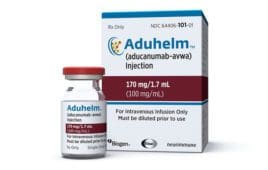 Cannabidiol (CBD), the phytocannabinoid discovered in 1940, is seemingly everywhere these days. In states where it is legal, it is in drinks, pet products and ointments. FDA frowns on CBD’s ubiquity. Over the years, the agency has warned several companies for selling unapproved CBD-based products.
Cannabidiol (CBD), the phytocannabinoid discovered in 1940, is seemingly everywhere these days. In states where it is legal, it is in drinks, pet products and ointments. FDA frowns on CBD’s ubiquity. Over the years, the agency has warned several companies for selling unapproved CBD-based products.
The small molecule drug discovery company Innovation1 Biotech (OTCQB:IVBT) is developing a novel CBD-inspired drug to treat a rare form of epilepsy.
Innovation1’s approach aims to build on the success of Epidiolex (CBD). Originally developed by GW Pharmaceuticals, Epidiolex became and FDA-approved drug in 2018 to treat two rare and severe forms of pediatric epilepsy when used with the benzodiazepine clobazam. In 2020, Epidiolex won an indication for seizures associated with tuberous sclerosis complex.
Although scores of companies are working to develop drugs based on Schedule 1 substances, Epidiolex is a rare success story. In 2021, Epidiolex had net sales of $463.6 million. The drug’s success convinced Jazz Pharmaceuticals plc (Nasdaq: JAZZ) to purchase GW for $7.2 billion in 2021.
“The stellar success of GW Pharma cannot be ignored, although that’s not clear if it’s a one-off or if it represents a pathway that others could follow successfully,” said Dr. Andrew Salzman, the chief scientific officer of Innovation1 Biotech (OTCMKTS:IVBT).
Aiming to improve on Epidiolex

Dr. Andrew Salzman
Salzman is overseeing the development of a molecule closely related to CBD for Dravet syndrome. The company selected a novel prodrug of synthetic cannabidiphorol that desensitizes several membrane-bound receptors in the brain (TRPV1, TRPA1, GPR55) that influence neuronal excitability and seizures.
Dravet syndrome affects roughly 1 in 15,700 infants and is associated with frequent and prolonged seizures and developmental delays. Dravet syndrome patients have a mortality rate in the range of 15% to 20% as a result of Sudden Unexpected Death in Epilepsy (SUDEP), prolonged seizures and seizure-related accidents.
In addition to clobazam and Epidiolex (CBD), drugs used to treat the condition include fenfluramine, valproic acid, topiramate and stiripentol.
While the drug is a success story, Epidiolex also has limitations. In particular, the drug isn’t effective in all patients with Lennox Gastaut syndrome (LGS) or Dravet syndrome. In addition, the drug appears to be associated with liver injury in some patients.
Complicating matters further, the drug is an intrinsically oily cannabinoid with poor oral bioavailability. CBD’s bioavailability improves, however, when administered with fatty food. As a result, a patient taking the drug could see erratic, unpredictable and inconsistent doses.
“One hardly wants to have a drug where on a Monday, you’re getting three times as much of a dose as on Tuesday, when you took the same amount,” Salzman said.
The FDA approved the drug despite that challenge because it showed a benefit in patients with Lennox-Gastaut syndrome and Dravet syndrome who had few treatment options.
A novel prodrug of synthetic cannabidiphorol
Innovation1 aims to overcome those shortcomings with its chemically manufactured prodrug of cannabidiphorol (CBDP). The company expects CBDP to be more potent than CBD in suppressing seizures due to its greater affinity for biological targets.
CBDP is a close analog of CBD with an identical molecule apart from the fact that one of its alkyl chains is two carbons longer.
“We know from research that it binds a lot more potently to the potential receptors involved in antiepileptic agents,” Salzman said.
Innovation1 also invented a way to conjugate CBDP to make a prodrug that confers a degree of water solubilization to it. “It becomes much less oily — much less hydrophobic,” Salzman said. Thus when swallowed, the drug potential would have more consistent and improved absorption compared to CBD.
The CBDP-based drug candidate could also potentially have reduced toxicity.
“Our goal is not to revolutionize the field but rather to do what I would call basic engineering,” Salzman said. “We are taking something that works and tweaking it to make it work much better.”
Innovation1 has filed a patent application for the CBDP prodrug.
The drug is currently in the preclinical phase. “The company is raising funds at the moment, like most young companies, and when those are in place, we’ll be able to accelerate the program and move forward and get it through and complete its preclinical steps and then go into the clinic,” Salzman said.
Filed Under: Neurological Disease





Tell Us What You Think!
You must be logged in to post a comment.